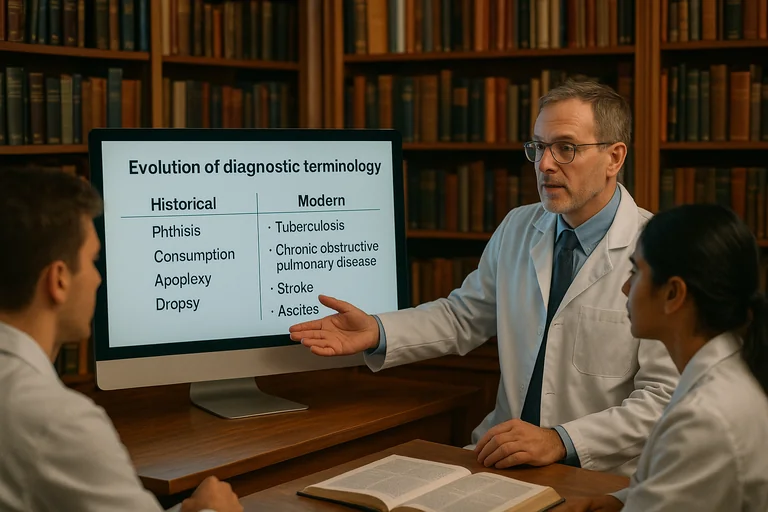A 2 minute assessment to get a personalized mental health or alcohol recovery plan.
Think alcohol poisoning is just a bad hangover that goes away in a few hours? The truth is it can last days, cause organ failure, and kill you while you're "sleeping it off."
What You'll Discover:
- Why alcohol poisoning can last anywhere from 12 hours to several days.
- The dangerous myth about "sleeping it off" that kills people.
- What actually happens during hospital treatment and why it takes so long.
- Warning signs that mean someone needs immediate emergency care.
When someone you care about is experiencing alcohol poisoning, one of the first questions that comes to mind is: "How long will this last?" It's a natural concern, especially when you're watching someone struggle with confusion, vomiting, or even loss of consciousness.
Or at least, that's what you hope - that there's a predictable timeline like a regular hangover. In actuality, alcohol poisoning can last anywhere from several hours to multiple days, and that's if the person survives. The NHS warns that alcohol poisoning can make you seriously ill and requires hospital treatment. After all, if it was just about waiting it out, emergency rooms wouldn't be full of alcohol poisoning cases. But in actuality, more recent data shows alcohol poisoning causes breathing to stop, hearts to fail, and brains to suffer permanent damage while people wait for it to "pass."
It may be time to understand how long alcohol poisoning really lasts if you want to know when someone needs immediate medical help versus when they're just drunk.
Why Nobody Can Tell You Exactly How Long It Will Last
Don't let anyone give you a simple answer about alcohol poisoning duration. The medical reality is far more complex and dangerous than most people realize.
Many researchers, emergency physicians and toxicologists will tell you that predicting alcohol poisoning duration is nearly impossible because of individual variations. Healthline explains that time depends on factors like weight and drinks consumed. Even if two people drink the same amount, one might recover in 12 hours while another needs days of intensive care. It's particularly unpredictable in young people who binge drink rapidly. For example, someone doing 21 shots for their birthday could have a BAC still rising after they pass out.
Now that you have a better idea why duration varies so wildly, let's delve further into what makes alcohol poisoning different from just being really drunk, some of which may be very surprising.
The Critical Difference Between Drunk and Dying
The undeniable truth is that alcohol poisoning isn't just extreme drunkenness - it's your body's systems shutting down. There's normal intoxication that follows predictable patterns, then there's poisoning where basic life functions fail.
Normal drunk follows the 0.015% BAC per hour elimination rule. Your liver processes alcohol, you feel better gradually, hangover hits, then recovery. Predictable, survivable, manageable.
Alcohol poisoning destroys this timeline. BAC levels get so high they shut down your brainstem's control of breathing and heart rate. The NHS states you'll need hospital monitoring because it can cause liver and heart failure.
Your breathing slows to dangerous levels or stops entirely. Heart rhythm becomes erratic. Body temperature drops toward hypothermia. Severe dehydration and electrolyte chaos develop.
Worried someone's just "really drunk" versus poisoned? If they can't stay conscious, breathing is irregular, or skin looks blue - that's poisoning, not intoxication.
What Actually Happens During Hospital Treatment
Now with understanding this is life-threatening, hospital treatment duration makes more sense. But more importantly, you understand why home "treatment" doesn't work.
What's most concerning about alcohol poisoning treatment is how intensive it needs to be. The NHS describes giving fluids through IV drips and breathing assistance. Essentially, machines keep you alive while alcohol slowly leaves. That is why it takes so long.
This is obvious when you see the treatment phases, but most people imagine it's simpler. Initial stabilization takes hours just to prevent death. IV fluids run continuously for 12-48 hours. Vital signs need monitoring every few minutes. It will continue until BAC drops to survivable levels.
The takeaway is that hospital stays typically last 12-48 hours minimum, but complications can extend this to days or weeks.
The good news is that with proper medical care, most people survive - but only with immediate professional treatment.
Factors That Turn Hours Into Days or Weeks
Clearly, basic alcohol elimination takes time. But understanding what extends recovery reveals why some cases become critical.
In addition to extreme BAC levels, several factors create longer, more dangerous recoveries. Mixing alcohol with other drugs - especially opioids, benzos, or sleep aids - can double or triple recovery time.
Let's look at complications realistically. Imagine someone vomits while unconscious and inhales it. That's aspiration pneumonia requiring antibiotics and potentially weeks of treatment. Or their liver starts failing from the toxic overload. That's ICU time, not just observation.
Another key consideration is seizures during recovery. As BAC drops, the brain can seize, requiring anti-seizure medications and extended monitoring. Hypothermia that developed during poisoning needs careful rewarming over hours.
NEED TO KNOW: Pre-existing conditions like diabetes, liver disease, or heart problems dramatically extend recovery. Young adults often recover faster than older adults whose organs can't handle the stress.
The Deadly Myth of "Sleeping It Off"
If there's one misconception that kills people with alcohol poisoning, it's the idea they can sleep it off at home.
The fundamental problem is that BAC keeps rising 30-90 minutes after the last drink. Someone who seems "okay" when they pass out might stop breathing an hour later. Their BAC is still climbing while they're unconscious.
Vomit aspiration is another lethal risk. Unlike normal sleep where you'd wake up to clear your airway, alcohol poisoning suppresses this reflex. People drown in their own vomit while "sleeping it off."
The Journal of Studies on Alcohol and Drugs found that delayed medical care is the primary factor in alcohol poisoning deaths. Every hour of delay increases mortality risk.
Temperature regulation fails during alcohol poisoning. What looks like "sleeping" might be hypothermia developing. Without warming and monitoring, body temperature drops toward death.
But here's what's critical: you can't tell from looking whether someone has alcohol poisoning or is just very drunk. Only medical evaluation can determine if their BAC is at lethal levels.
Warning Signs That This Will Last Longer Than Expected
Recognizing signs of complicated, extended alcohol poisoning helps families prepare for longer hospital stays and understand severity.
Persistent unconsciousness after initial treatment means severe poisoning. If someone can't be roused after hours of medical care, expect extended ICU time.
Continued breathing problems despite oxygen support indicate respiratory system damage. This might require mechanical ventilation for days.
Seizures during treatment predict complicated recovery. Each seizure potentially causes more brain injury and extends hospital time.
Signs of organ failure - yellow skin (liver), no urine (kidneys), persistent confusion (brain) - mean recovery will take weeks, not hours.
Understanding how alcohol affects your body long-term helps explain why repeated poisoning episodes cause cumulative damage.
Terrified someone you know has alcohol poisoning right now?
If someone is unconscious, breathing slowly, vomiting, or has blue skin - call 911 immediately. Don't wait to see if they "get better." For those struggling with dangerous drinking patterns, Choose Your Horizon offers 100% online assessment and treatment to address alcohol problems before they become life-threatening.
Ready to stop drinking before alcohol poisoning becomes your reality? Take the online Alcohol Use Assessment to understand your drinking patterns and get help before emergency rooms and ICUs become part of your story.




